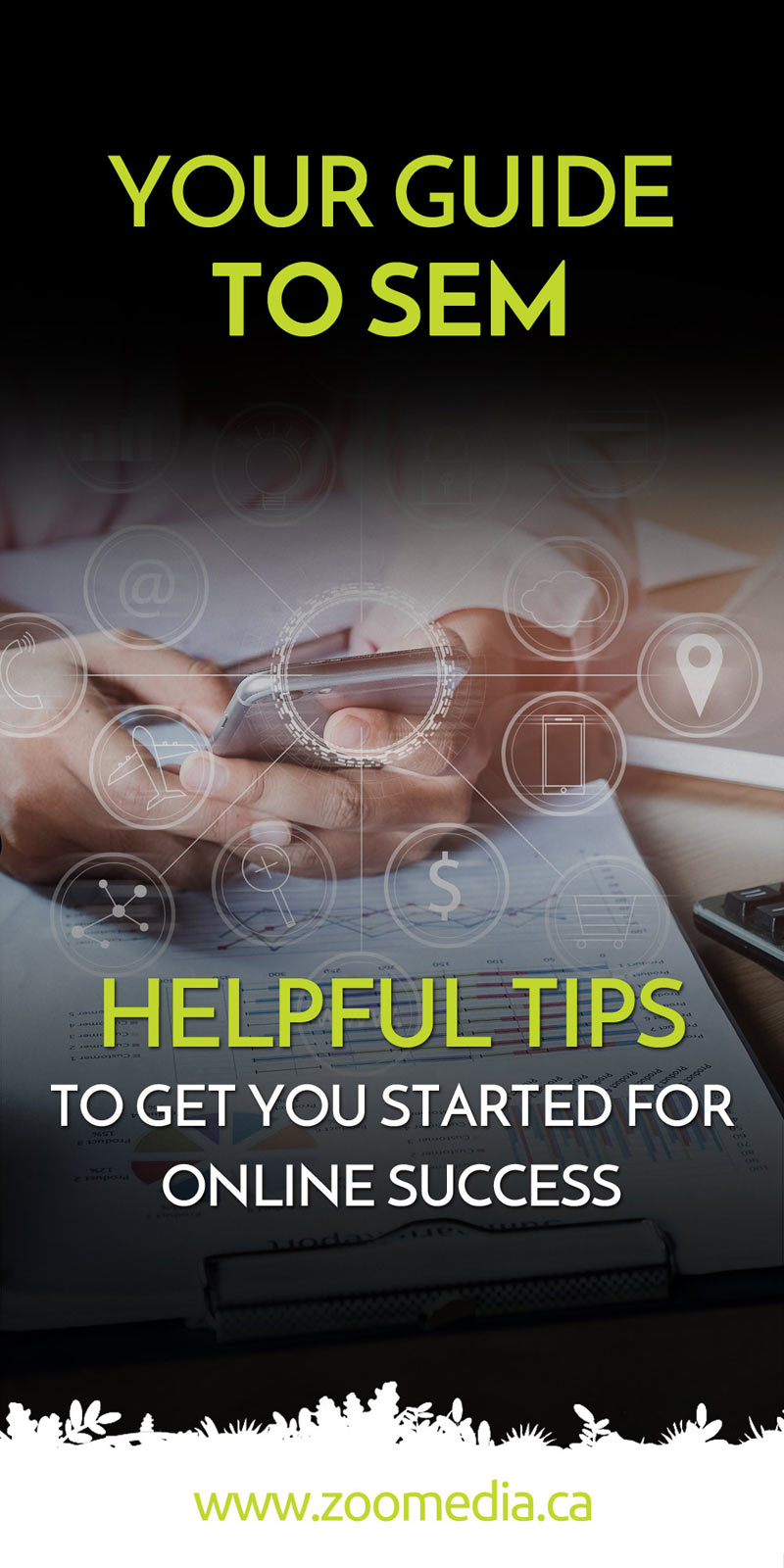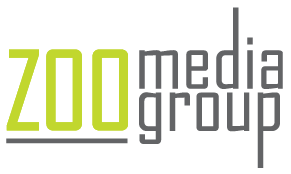Your Guide to Search Engine Marketing
We live in an increasingly digital world. Most people turn to the internet when they are looking for anything – from a restaurant for dinner to which new dishwasher to buy. The competition is fierce as countless other businesses are competing for the same attention – attention that does not span past the first page of results. If you want to be seen, you need to be on page number one. Search engine marketing will effectively promote your business through measurable ads targeted at people searching for your products or services and will also help you land on the coveted first page.
What is Search Engine Marketing?
You may have heard the term but are wondering what search engine marketing (SEM) actually is. SEM is marketing your website through digital ads that appear with search results on Google, Bing or Yahoo. It’s used by small startups to enterprise businesses to get in front of potential buyers. It’s considered a nonintrusive form of advertising since potential customers are doing actual searches for those specific products or services. You decide which keywords can be used when searching for your products or services and you bid on them. This allows your ad to appear in the search engine results page (SERP) along with other organic search results. Search engine marketing tactics will often include search engine optimization (SEO) too, where content is adjusted or rewritten to enhance the pay per click (PPC) campaign. SEM ads can range from a simple text ad to a more visual full product description or banner ad. In addition, SEM is one of the most cost-effective forms of advertising since you only pay when someone clicks on the ad, called pay-per-click (PPC).
What are the Benefits of SEM?
1. Motivated and Engaged Audience
The greatest benefit of this type of advertising is that you are marketing to an engaged and motivated prospect that is actively searching for your products or services. They are usually in the final stage of the buying cycle and are ready to make a decision. It’s a prime opportunity that no other advertising medium can deliver, which is why search engine marketing is such an effective tactic to grow your business.
2. Quick and Easy to Implement
Other benefits of using search engine marketing are that its easy and quick to implement. Agencies can launch an SEM campaign within a few days to a week. Any changes can be done as needed. You can adjust the campaign keywords as you make changes to your website or adjust your spending based on your sales cycle or audience behavior.
3. SEM is Measurable
SEM campaigns are completely measurable. You can track the campaign success using the detailed analytics and continually adjust the keyword mix to optimize your spend. The reports will show you exactly how much you are spending by keyword so you can make informed decisions on your budgeting.
The Importance of Keywords
Keywords are fundamental to a successful search engine marketing strategy – they are the main ingredient in your recipe for success. Keywords are what link your ad or content to what the user is searching for. If there’s a match, that’s a win!
The first thing we need to do when starting an SEM campaign is consider what your prospective clients would use in terms of keywords and phrases to search for your products or services by conducting keyword research. Once we have compiled a list of the most relevant words and key phrases that we want to rank for, the next steps are to review the costs per keyword. Things to consider is the monthly budget you want to spend and how competitive the keywords are that we would have to bid on. The more popular the word the more expensive it will be.
It doesn’t end there, things like Quality Score, click-through rate and ad rank will also affect how much you pay per click. The Quality Score is a factor Google uses to figure out how relevant your SEM ad is to the words and key phrases you are trying to bid on. The higher your Quality score is the lower your cost per click will be which is super important to stay on budget and grow your business.
Focused Targeting
One of the reasons search engine marketing is so effective is that advertisers can specify who they want the ads to target. You can set your ads to run at certain times of day, on specific devices and target customers by location. Focusing your SEM ad spend on your ideal customer will make the most of your advertising budget but also increase the chances of reaching your target audience.
What is Pay Per Click (PPC)?
You’ve likely heard us mention Pay Per Click. That’s what we call this type of advertising because you bid on keywords and you pay when someone clicks. It takes time and experience to do this effectively as you want those clicks to translate into paying customers. Otherwise, it can be a costly venture.
Our ZOO Team has the experience and expertise to help you manage a successful SEM campaign. We will leverage our comprehensive software tools to manage the campaign efficiently and maximize your ROI.
How Much Should I Spend On SEM?
When it comes to search engine marketing costs there is no one-size-fits-all. The cost will ultimately depend on your budget and goals, and could range anywhere from $500 per month to over $20,000 per month.
We suggest starting at a lower cost and augment your budget as you gain more insight into which keywords work best. The fact that this digital strategy is highly measurable, you will be able to clearly gauge what’s working and what isn’t then adjust the budget accordingly.
Managing Your SEM Campaign
We know you’re looking for profitable leads that turn into clients and not just some statistics about clicks. At ZOO, we focus on conversions. You’ll see that our analytical approach provides you with progress updates and an opportunity to make decisions based on actual measurable data.

SEM Monthly Stats Report
We will test your landing pages monthly and make changes to help increase conversion rates. Using A/B testing allows us to determine which approach provides the highest conversion rates. This means incremental increases in the ROI over time.
We understand that bidding on keywords and deciding which keywords are most suited to your needs is a complicated venture for the average business owner. So, we take care of monitoring which words are performing best, without budgeting too high on words that don’t convert and not too low on words that are working well. When we identify the highest performing keywords, we individually manage them to maximize clicks and profitability. Likewise, we identify the poorest performing keywords and eliminate them to reduce cost.
We think you’ll go wild for our ZOO Team’s expertise and service for CPP campaigns. Give it a try and see the roaring results for yourself!
Search Engine Marketing vs. Search Engine Optimization
With all of these letters being thrown around, it’s tough to keep track. So, what’s the difference between SEM and SEO? Search engine marketing is paid advertising which allows your ad to appear in search results. Search engine optimization is different because you’re not paying to advertise. You are utilizing keywords in your website content to try and earn a free spot in the search results.
Organic search results refers to the unpaid results of a query. Although paid marketing makes up the top search results, SEO is a way to enhance your organic results. Figuring out how to leverage this can be tricky and time consuming as Google and other search engines use complicated algorithms to compile their results and these algorithms change frequently. Fortunately, our ZOO team follows these trends and can help you navigate. Be sure to reach out to us with any questions you may have.
Both search engine tactics should be an important part of your digital marketing strategy. SEO can direct a fresh stream of prospects to the top of your funnel while SEM effectively converts prospects into clients. Together, they work in tandem to bring you the best digital results.
Optimizing Your Website for Search Engines
There are many factors that contribute to a search algorithm. In fact, Google uses approximately 200 signals as part of their calculation. These “signals” can include your content, geography, bounce rate, time on page, site speed, site structure, page rank and how easy your site is to navigate. These things all factor into where your page ends up in the search results.
Here are some tactics you can use to help your SEO. To have a wildly successful website, our ZOO experts suggest:
- Ensure your site is mobile friendly. You may recall a major change from Google in 2015 that put emphasis on mobile friendly sites. Either you are or you are not, and it impacts your rating.
- User Experience (UX) has become an important factor. Consider how users navigate your site. Is it easy to use? Or difficult to navigate? A good user experience will rate higher than a site that is confusing to use.
- Utilize basic website features like meta tags, keywords, heading tags and optimized images.
- Create local listings for your business so it’s easy to find. Yahoo Local, Bing Local and Google My Business are essential.
- Ensure other websites link to yours to establish your site as an authority (at least as far as the algorithm is concerned).
- Avoid technical jargon or internal phrases and acronyms. You need to think like your potential customers, and they might not know the correct terms to search for.
- Stay current with your company’s products, offers, and news. A great strategy is to have a weekly blog so there is a constant stream of fresh content.
- Setup social media business pages and post relevant helpful content on a regular basis for your followers including syndicating your blog articles to get more traffic to your website.
If these ideas make sense but you’re still unsure about how to put all the pieces together, or don’t have the time, let our ZOO team help. We can help optimize your website and look after your search engine marketing campaigns to help you grow your revenue. These effective strategies can be a major win for your business.
To learn more, contact ZOO Media Group today!




